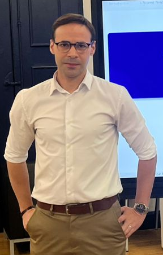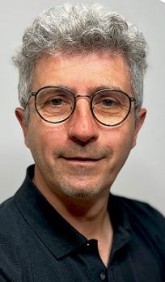- Homepage
- >Summer schools
- >Engineering and sustainability
Engineering and sustainability
This Summer school is co-organised by Polytech Angers (University of Angers), Galatasaray University (GSU) and the French high school Notre-Dame de Sion (NDS) in Istanbul. The course offers a full immersion combining science, technology, and French culture through practical workshops and cultural discovery.
|
When |
June 29-July 3, 2026 Arrival in Angers: June 28 in the morning (activities start on June 28 at noon) |
|
Where |
Polytech Engineering school, University of Angers, France |
|
For whom |
This summer school is designed for high-school students from Notre-Dame de Sion (NDS) who are interested in exploring engineering studies in France. Participants must be 18 years old or above. The course particularly welcomes students interested in Polytech Angers’ engineering programmes: SAGI (Automation and Computer Engineering), QIF (Quality, Innovation & Reliability), BAT (Sustainable Building) Selection will be made by Galatasaray University and NDS. |
|
Language |
English and French (English for workshops, French for visits and interactions) |
|
Participation fee |
High-school students from NDS: 500 EUR Fees include welcoming and teaching materials, coffee breaks and weekday lunches, social activities, transport pass and all costs related to scientific visits. |
|
Learning outcomes |
The course aims to identify motivated students for a future integration into the preparatory cycle at Polytech Angers, with the perspective of continuing in one of these programmes. Discover engineering and sustainability through hands-on workshops in digital systems, robotics, industrial automation, energy, and sustainable building design. Visit the LARIS Laboratory (EA 7315) at Polytech Angers and meet researchers and students. Learn about French higher education and student life. Participate in a cultural programme exploring Angers and its heritage. Present a mini-poster or demonstration at the end of the week. |
|
Credits |
Certificate of attendance |
|
Enrol now |
There are 15 spots available for this course. The course may be canceled if it does not reach a minimum of 10 participants. |
Course Coordinators
|
|
|
Dr. Nizar CHATTI, Professor (MCF HDR) at Polytech Angers, Graduate school of engineering of Angers University Dr. Nizar Chatti is Director of International Relations and Professor at Polytech Angers and a member of the LARIS Laboratory (EA 7315). He teaches in both the SAGI (Automation and Computer Engineering) and QIF (Quality, Innovation & Reliability) programmes. His research focuses on intelligent monitoring and decision-making for complex systems, combining physical modeling and machine learning to improve system reliability and autonomy. His work covers several domains including condition monitoring, diagnostic and prognostic health management (PHM), renewable energy systems—especially photovoltaic installations—and autonomous mobile robotics. Dr. Chatti obtained his PhD in Automatic Control and Industrial Computing from the University of Lille in 2013 and completed a postdoctoral fellowship at the IMS Laboratory (CNRS UMR 5218) in collaboration with Airbus Operations in Toulouse. Since joining Polytech Angers in 2014, he has contributed to bridging model-based and data-driven approaches through decision fusion and adaptive learning strategies. At the intersection of engineering, artificial intelligence, and data science, his research aims to develop robust, intelligent, and adaptive systems for industrial and energy applications, promoting interdisciplinary collaboration and innovation. |
|
|
|
Prof. Sébastien LAHAYE, Professor at Polytech Angers, Graduate school of engineering of Angers University Prof. Sébastien Lahaye teaches Automation and Computer Engineering. His research interests cover modelling, identification and control of Discrete Event Systems, as well as optimization of complex dynamic systems. Prof. Sébastien Lahaye is at the head of LARIS UR 7315, laboratory composed of 55 permanent members (professors., assistant professors, research support staff), around 35 PhD students and 10 Post-Doc or trainees. |




